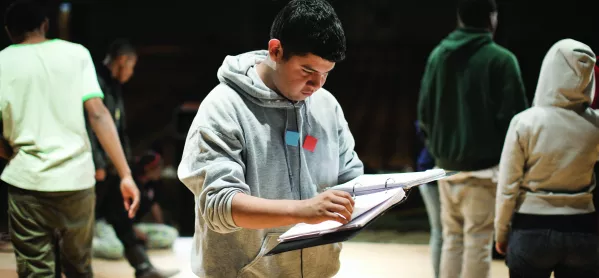Ricardo breaks off from his hour-long football practice to tell me about his day. Having travelled halfway across London in a free minibus, the 16-year-old is spending the morning playing sport. In the afternoon he’ll learn about science and how the muscles in the body work.
He much prefers it to the college where he was studying for A-levels. “It’s more relaxed here and fun,” he says. “I was stressed at college. I couldn’t handle the workload and I wasn’t studying the subjects I enjoyed. So I left and sat at home doing nothing. I’m really glad I came here.”
He is now being taught by Let Me Play (LMP), an organisation that scoops up young people not in education, employment or training (Neets) and teaches them practical and academic skills outside of a traditional learning environment. Ricardo is studying for a BTEC level 1 in sports and, although he might not realise it, the science he’s picking up is actually cleverly embedded functional skills English and maths. By the time he’s completed the 20-week course, he’ll be armed with certificates and be well-placed to follow his dream of working in sport.
LMP also runs courses in performing arts, health and beauty, catering and music production, and even has a football academy with regular matches and kit thrown in. Each course offers up to five qualifications, including ones in literacy and numeracy. Students attend five days a week; each day comprises two hours of vocational training and 90 minutes of classroom-based study. The structure changes to keep things fresh. “The focus is on fun,” says LMP director Amy Lalla.
Earlier this year, a parliamentary report suggested that 148,000 16- to 18-year-olds were Neet. The actual number is probably much higher: about 100,000 people in the same age group -remain unaccounted for by their local authorities. With further education funding being cut, this already-vulnerable group of outcasts is in danger of being forgotten entirely.
To read more, get the 24 July edition of TES on your tablet or phone or by downloading the TES Reader app for Android or iOS. Or pick it up at all good newsagents




